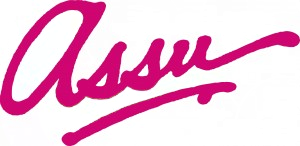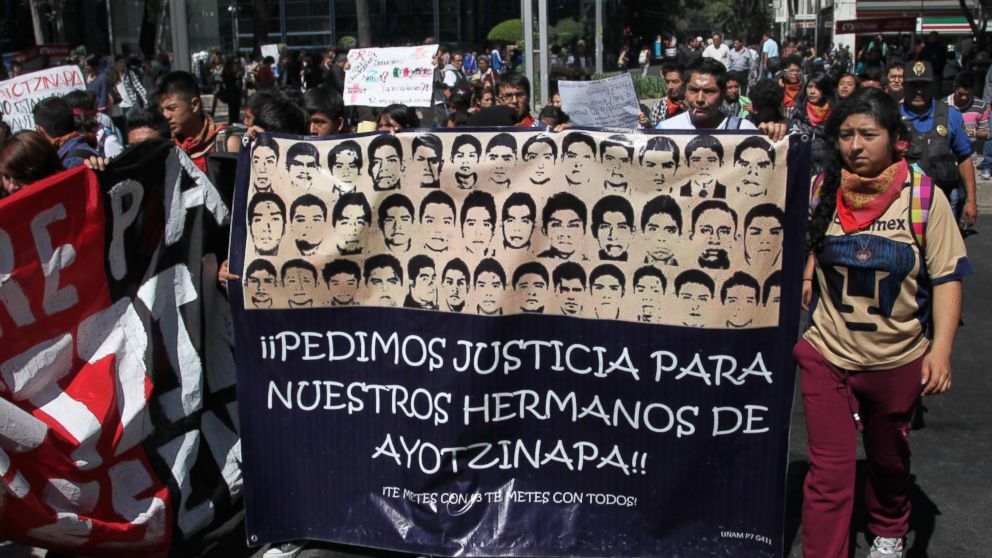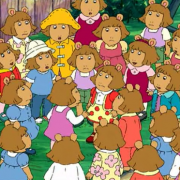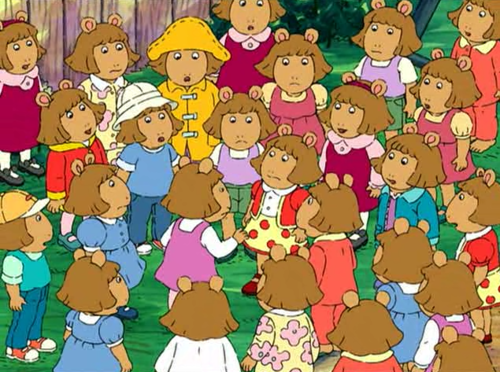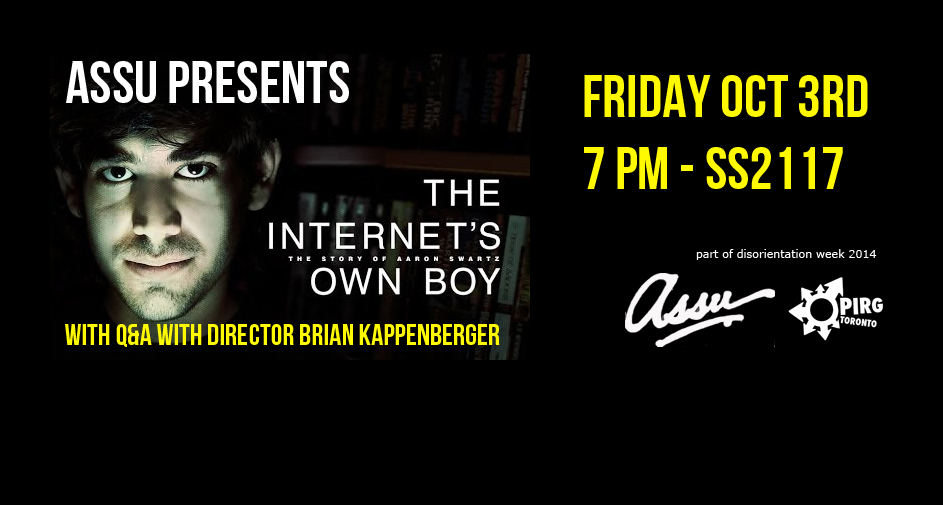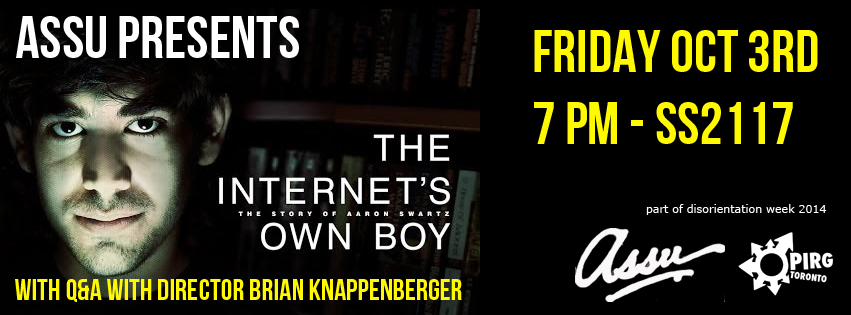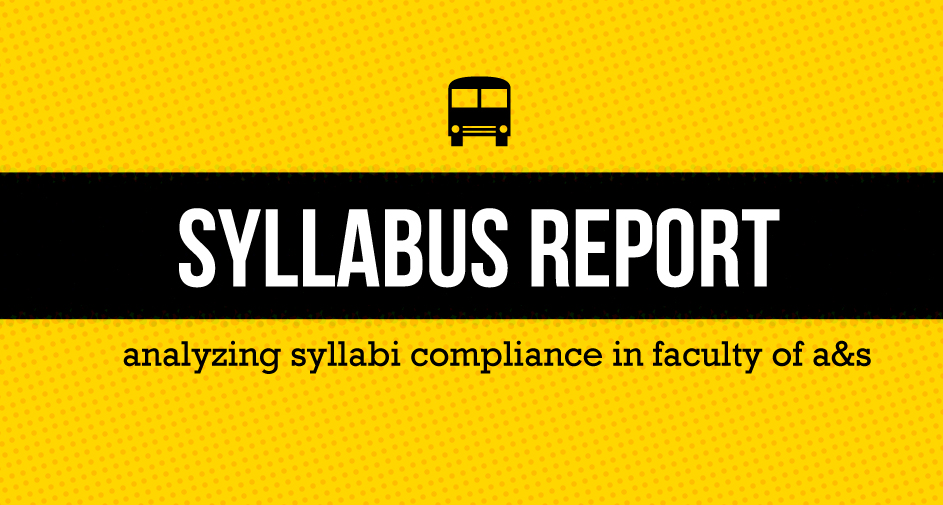Rest in peace, rest in power.
/in ExecBlogs/by AdministratorIn the last twenty four hours, it has come out that the 43 students missing in Mexico are now thought to be presumed dead. Suspects in the case of their disappearance apparently confessed to brutally murdering them and then burning their bodies. News like this ordinarily is gruesome and tragic, however – it sticks with me further because these were students and not just any students. These were students who decided to take charge of their education and demand better quality and better access. For this, they were shot at, captured and murdered. Our heartfelt condolences goes out to the families.
Of course – these students are not alone. Historically, the student movement has been one that has challenged governments and the status quo, seeking a change not only for themselves but for society in general. In doing so, they put themselves in harms way; peaceful protest often suppressed by a gunshot, a police baton and imprisonment. As a student activist, I have an immense privilege to be able to do my work in peace without the threat of violence. Many activists around the world do not have this luxury.
We often like to romanticize the student movement, the protests, etc. But remember, that often, standing up for what you believe in comes with an immense cost in many parts of the world and indeed, in Canada as well. Families are affected, people get injured and jailed – it’s not an easy struggle and tonight 43 families mourn the loss of their loved ones. Strike actions and protests often are not choices — but a means to an end, the only way to get things done in some places.
Tonight, I remember those students and commend them standing up for what they believe in while facing a threat, that I will never face in my days of student activism.
Reflections on Mental Health Week
/in ExecBlogs/by AdministratorMental heath is a persistent issue at the University of Toronto. This past week, as part of U of T’s Mental Wellness Month, ASSU hosted a Mental Health Week. Cupcakes, laughter yoga and free coffee – all of that good stuff. While our week consisted of de-stressing events, it’s important to remember that mental health is a systemic issue – not an individual one that will be corrected by telling students to take more breaks, or to relax more. When students have four midterms in a week, taking time out to attend a meditation session is not necessarily feasible. Before our week began, the Minister of Training, Colleges and Universities announced $12 million dollars for mental health initiatives and services for universities. This is a good start, however – it’s time we stop approaching mental health through service implementation perspective and look more broadly at what exacerbates these issues in the first place.
U of T is chronically underfunded and as provincial funding continues to drop, tuition fees continue to go up. The yearly enrolment goes up, students are placed in larger class sizes and have less resources available to them. The educational experience becomes impersonal and out of touch for some and extra pressures are placed on the shoulders of students. Financial pressures, academic pressures as well as anxiety over one’s future all serve as stressors that can worsen an individual’s mental health.
ASSU Executive, Ariel Charney is involved in a group, Unite U of T – which seeks to address mental health concerns on this campus through the medium of creative expression. Students were invited to write their concerns and “how U of T made them feel” on a piece of paper and post it on a board. The results were telling, students overwhelmingly felt depressed, out of place, stressed, etc. Since then, many creative solutions have come up to solve these problems and I encourage you to check them out here. But what is clear is that for things to change at the university, for pedagogical practices to advance , for us to get a truly high quality of education – our university must be adequately funded. While providing funding for mental health initiatives is good, the Government of Ontario should know that they are merely treating the symptoms of a larger problem of chronic underfunding – a problem that the government has created and can easily rectify.
Welcome to the first post on the blog!
/in ExecBlogs/by AdministratorSo, this is the new ASSU Executive Blog. And this is where executives will publish blog posts, from everything having to do with policy positions, education and campus life. My name is Abdullah and I am the spirtiualleader President of the Arts and Science Students’ Union. We represent 23,000 students in the Faculty of Arts and Science. This blog will serve as a way for you to get to know your executives better and for us to communicate more effectively with y’all.
At U of T, it can feel easy to feel out of place and lost within the crowd. You may love what you’re studying but feel like you aren’t getting the best in Row 300 of Con Hall, you may find it ridiculous that you have to pay $3 for a banana and you might feel like the school can be a bit hard to navigate bureaucratically. Have no fear – your student union is here. We are your academic union and we’re here to address any concerns you may have about your educational experience, both within the Faculty and within the university at large. Keep up with us on twitter at @assu_uoft, on Facebook and on instagram!
More posts to come! Follow me on twitter at @assupres.
ASSU Executive Statement: Missing Students in Mexico
/1 Comment/in News/by AdministratorThe ASSU Executive expresses grave concern over the situation of 43 students from Ayotzinapa Teacher Training College in the Mexican city of Iguala, who have been reported missing after attending a protest against proposed changes to the education system. Students, across the world, have the right to freedom of speech and the right to protest. It is the actions of students like these, that have defended accessible, affordable post secondary education throughout history and across the globe. We stand in solidarity with the students and teachers of Ayotzinapa Teacher Training College, and our thoughts are with the families of those missing. We join Human Rights Watch and Amnesty International among others, in demanding that the students be safely returned to their homes.
ASSU Executive Statement on MRA Poster
/in News/by AdministratorEarlier this week, it was brought to the attention of the executive of the Arts and Science Students’ Union (ASSU) that a large banner associated with the group Canadian Association for Equality was prominently hung in the Sidney Smith Hall lobby. ASSU does not control what goes up in the lobby nor who uses the space as it falls under the jurisdiction of the Faculty of Arts and Science.
This banner is currently allowed to be displayed because CAFE operates on the U of T campus under the guise of a student group called “Men’s Issues Awareness at University of Toronto”. While the names of these groups may seem to imply that their goals include equality and engaging in public discourse, this is not the case. CAFE has in the past invited speakers who have denied the impact of rape culture, over-exaggerated the rate of false-allegations made by female victims of sexual assault, engaged in transphobic and misogynistic rhetoric and questioned the very existence of the patriarchy. Broadly, the Men’s Rights movement claims that feminism has gone beyond improving the position of women in society, suggesting that feminists are part of a system which actively oppresses men. It has become clear that these groups use talks about legitimate issues facing male-identified members of our society as a means of legitimizing their sexist ideology.
CAFE and its affiliate on campus have been linked to a Texas based website called “A Voice for Men” (AVfM) that has actively targeted and harassed female members of the University of Toronto community, posting photos of them online along with threatening and derogatory comments. The well respected Southern Poverty Law Center has called out AVfM for misogyny and threats, overt and implicit, of violence. When these groups are allowed to circulate their hateful materials on our campus, our peers are exposed to triggering and violent rhetoric.
In recognizing students’ diversity of lived experience, ASSU is committed to supporting our members in addressing the systemic oppression they face –including sexism. While universities play an important role as sites of societal critique and free speech, we must strive to ensure that they are safe(r) spaces for all members of the university community. Issues facing men and boys, and critiques of feminist theory and feminist praxis are important topics that should be debated openly, but this discourse must not be allowed to devolve into hateful and threatening rhetoric.
We must not forget that the horrible massacre at École Polytechnique de Montreal a mere twenty-five years ago was perpetrated by an individual espousing an anti-feminist logic. We cannot forget that women are harassed, sexually assaulted and raped on our campuses. We cannot ignore this group’s complicity in the victimization of women here – on our campus.
The University of Toronto is our home. The ASSU executive calls on the administration to reconsider the policies which allow groups to circulate such material, with the aim of ensuring that all community members feel safe.
– The ASSU Executive
UofT Statistical Sciences Association of Students (UofT SSAS) ELECTIONS
/in Course Unions, Elections/by setojaneThe UofT Statistical Sciences Association of Students (UofTSSAS) is holding elections next week for President, VP-Internal and VP-External. The President and VP-External positions have been acclaimed. There will only be an election for the VP-Internal. The candidates statements are listed below.
The polling station will be open from 10-3 on Monday, September 29th and Tuesday, September 30th in the Study Area of Sidney Smith (St. George Street side).
Please make sure you bring your Student ID card – only full-time Arts & Science students who are either enrolled in an ACT/STA course or those who are enrolled in an ACT/STA program are eligible to vote.
Here are the candidates and their statements:
Candidates for Vice-President Internal
Michael Jun Ki Yoon
I would like to run for vice-president internal for UofT SSAS.
I have past leadership experiences and commitments at other clubs at this university such as the vice-president of St Michael’s College Korean Students Association and as a finance and governance committee member of Global Student Network.
SSAS has been very successful with hosting various events such as social events, career networking and etc. My goal as a vice-president internal is to help the club run smoothly and follow the rules and regulation. Considering my experience of working for several clubs, I’ve found that I do my best when I’m in the back side of the team supporting the team members with governance and finance.
I reserve rather conservative ideas in terms of ideas for this club since, the club’s been running very successfully for the past years and there’s no need to fundamentally change the ideas of the club. My commitment should be supporting the club to run smoothly and seek for improvements. One particular thing I would like to focus on is hosting more career networking opportunities for the students.
I believe that my past experience and passion to help out this club will contribute greatly for this upcoming year. There, I believe that I am a very eligible candidate for VP internal.
Tannishtha Pramanick
My experiences in applied statistics began with a satellite tracking project affiliated with NASA in high school and continued with two clinical research internships at Harvard Medical School. From these, I gleaned that statistics and big data is very useful in a wide variety of fields. I want to share my passion for statistics with the student body, and as VP internal I intend to foster a community where students will have the opportunity to network and hear from experts in the field. Also, I understand that a vibrant social scene is vital for student satisfaction, as I currently serve as social coordinator of my residence. Lastly, my leadership experience as the editor-in-chief of the new global affairs magazine, The Foreign Observer, has prepared me to lead with enthusiasm and focus. Vote for me, and I promise you an amazing year!
PLEASE COME OUT AND SUPPORT YOUR COURSE UNION!!
Nominations for ASSU Executive are now open
/in Elections, News/by AdministratorASSU Council will elect two new executive members at our first Council Meeting on September 29th. These executive members will join the five ASSU executives who were elected in March.
This is a great way to get involved with your education here at the Faculty of Arts and Science. Executives take an active role in discussions around Faculty policy and the life of students here on campus.
More information and nomination forms can be found in the ASSU Office, Sid Smith Hall Rm 1068.
Nominations are now closed.
ASSU Presents: The Internet’s Own Boy
/in Events, slider/by AdministratorASSU is proud to host an exclusive screening of The Internet’s Own Boy, as part of disOrientation Week 2014. The screening will be followed by a Q&A with the director, Brian Knappenberger. Join us on Friday, Oct 3rd at 7pm in SS2117.
“The Internet’s Own Boy follows the story of programming prodigy and information activist Aaron Swartz. From Swartz’s help in the development of the basic internet protocol RSS to his co-founding of Reddit, his fingerprints are all over the internet.
But it was Swartz’s groundbreaking work in social justice and political organizing combined with his aggressive approach to information access that ensnared him in a two-year legal nightmare. It was a battle that ended with the taking of his own life at the age of 26. Aaron’s story touched a nerve with people far beyond the online communities in which he was a celebrity.
This film is a personal story about what we lose when we are tone deaf about technology and its relationship to our civil liberties.”
https://www.facebook.com/events/767788589952653/?fref=ts
Reserve your spot today: www.bitly.com/1tkOUGf
Syllabus Project Report
/in News, slider/by GavinIn the fall of 2013, ASSU received a number of reports of instructors not returning the required percentage of the final mark back to their classes in time for the drop date. Due to our close relationship with the Faculty of Arts and Science (FAS), and specifically the Office of the Dean, we were able to have these particular instances addressed. However, our executive team discussed the possibility that there could be other instances of policy non-compliance occurring unbeknownst to us because of a lack of policy knowledge amongst our constituents.
Out of this concern grew the idea for a review of course syllabi from across the Faculty, as a means of acquiring solid data regarding policy compliance instead of relying on anecdotal evidence in our discussions and lobbying efforts with the Faculty. As the syllabus is essentially a “contract” for the requirements of a course and the primary source of course-related information, ASSU recognizes the importance of these documents to students.
Our team began collecting syllabi through our course unions, personal contacts and by donating our own syllabi to the cause. We must acknowledge the support of Course Union executives who actively participated in the collection process. We were able to compile 93 syllabi from across the Faculty, representing a vast majority of program indicators, series level and both fall and full year courses.
During the spring semester of 2014, members of the ASSU executive committee analyzed these syllabi for compliance with mandatory FAS policy, standard practice regarding non-essential elements of course syllabi, and for other relevant information. We appreciate the invaluable contributions of executives Charles Dalrymple-Fraser, Branden Rizzuto and Mohammad Ali Saeed, who completed a majority of the data analysis for this project.
The following report outlines the findings of our review. We also offer some recommendations aimed at improving policy compliance and the overall quality of syllabi for students in the Faculty of Arts and Science.
